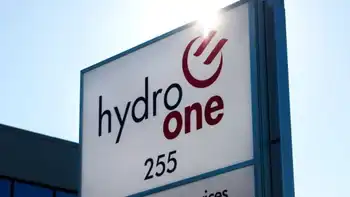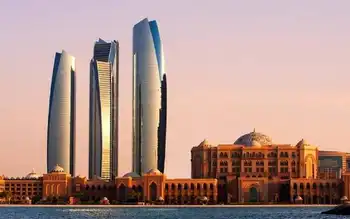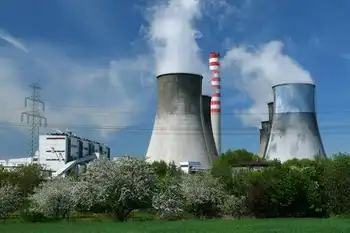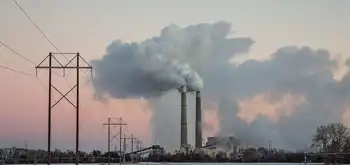TEHRAN -- - Iran Will Allow U.N. Inspections of Nuclear Sites
TEHRAN -- Iran agreed recently, after months of resistance, to accept stricter international inspections of its nuclear sites and to suspend production of enriched uranium, which can be used to develop nuclear weapons.
But Tehran gave no indication when it would suspend uranium enrichment or sign, ratify and carry out an additional agreement under the Nuclear Nonproliferation Treaty of 1968 that would allow surprise inspections of its nuclear installations.
The accord was completed in Tehran during an unusual visit by three European foreign ministers, Dominique de Villepin of France, Jack Straw of Britain and Joschka Fischer of Germany.
The ministers expressed hope that it would help defuse a diplomatic crisis that pitted Iran against the International Atomic Energy Agency and, increasingly, the world because of concerns that Iran is determined to become a nuclear power.
In a news conference with the three ministers, Hassan Rowhani, a powerful middle-level cleric who has emerged as Iran's chief negotiator during the current crisis, said the one-and-a-half-page agreement would first have to be approved by Iran's elected Parliament.
He emphasized that the suspension of uranium enrichment would be for an "interim period."
In Washington, the State Department reacted skeptically to the agreement, with officials privately voicing concerns that Tehran would not fully comply. Officials there only grudgingly praised the work of their European colleagues.
"Frankly, I'd say there's a good reason for healthy skepticism about what Iran will actually do, as opposed to what it says," one senior department official said.
The international terms for compliance include unfettered access by officials of the International Atomic Energy Agency — the United Nations body that monitors nuclear programs around the world — to weapons development sites, as well as chemical samplings from places where enriched uranium suitable for weapons is being produced.
Bush administration officials dismissed the notion that a less confrontational approach by the Europeans had yielded more tangible results than the administration's policy of ultimatums. They insisted that the agreement merely buttressed the American policy, and said they had kept in touch with the Europeans throughout the initiative.
"The European mission didn't give the Iranians any daylight," the senior State Department official said. "I wouldn't call it a deal, because the issues that concern us weren't subject for compromise."
Still, the agreement was a victory for the Europeans and the culmination of two and a half months of diplomatic effort to convince Iran that it would be punished by an undivided world community if it did not comply with the International Atomic Energy Agency's strict demands.
It also underscores the emergence of a potentially powerful European alliance in the aftermath of the American-led Iraq war and occupation among Britain, which supported the war, and France and Germany, which did not.
As an incentive to Iran, the agreement recognized its right "to enjoy peaceful use of nuclear energy" in accordance with the nonproliferation treaty. Indeed, Mr. Rowhani said Europe and Iran were entering a "new phase" in which Europe was committed to help Iran develop its nuclear energy program and to seek ways to increase trade ties with Iran.
A policy that uses incentives in the nuclear field puts the European position at odds with that of the United States. The Clinton and Bush administrations have opposed Russia's project with Iran to build nuclear reactors at Bushehr on the Persian Gulf, arguing that Iran — a major oil producer — does not need nuclear energy and that activities at the site could indirectly help a nuclear weapons program.
In making the pledges, Iran seems to have been motivated primarily by a fear of international isolation and sanctions. Last month, in a vote that united Americans, Europeans and others, the 35-nation governing board of the International Atomic Energy Agency ordered Iran to prove by Oct. 31 that it has no secret weapons program or face unspecified consequences at the Security Council.
Related News
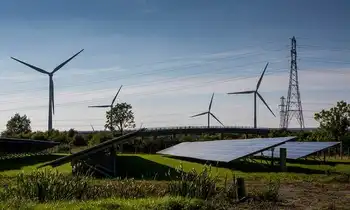
Wind and solar make more electricity than nuclear for first time in UK
LONDON - Wind farms and solar panels produced more electricity than the UK’s eight nuclear power stations for the first time at the end of last year, official figures show.
Britain’s greenhouse gas emissions also continued to fall, dropping 3% in 2017, as coal use fell and the use of renewables climbed.
Energy experienced the biggest drop in emissions of any UK sector, of 8%, while pollution from transport and businesses stayed flat.
Energy industry chiefs said the figures showed that the government should rethink its ban on onshore wind subsidies, a move that ministers have hinted could happen soon.
Lawrence Slade, chief executive…

